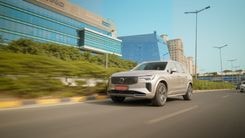Volvo Cars To Harness Real-Time Data From Customer Cars To Set New Safety Standards
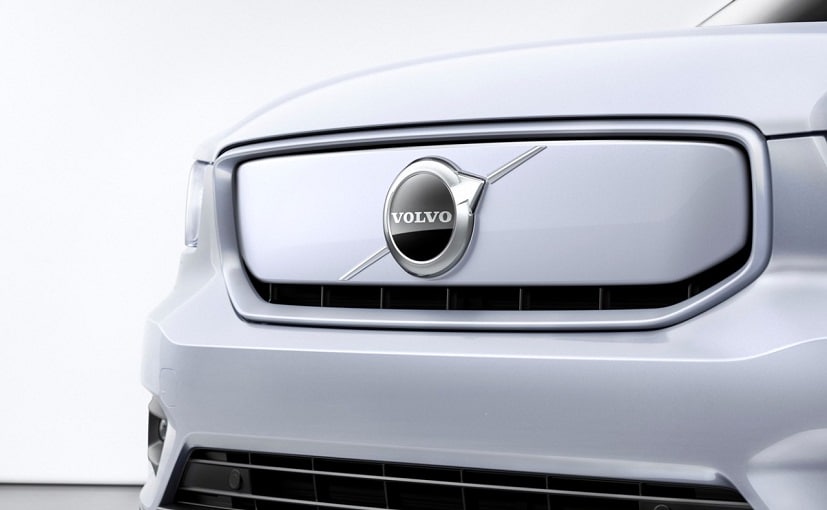
The next generation of Volvo cars are set to be the company's safest ever, thanks to cutting-edge software and hardware levels, coupled with continuous and more rapid improvements to safety features with the help of real-time data. Volvo Cars has always taken a data-driven approach to safety, using traffic data from real-life situations to develop new safety technologies and make its cars even safer. For its next generation of cars, Volvo Cars is now looking towards processing data from customer cars in real time, if customers choose to share data and help Volvo Cars make its cars safer.
Also Read: The Volvo Concept Recharge Showcases Design For Next-Gen EVs

Volvo Cars and Zenseact are investing in a data factory that will contain over 200 PebiBytes (225 million gigabytes) of data within the next few years.
By allowing customers to choose and be a part of improving safety levels and traffic safety in this way, Volvo Cars can make continuous and much faster improvements to its cars, constantly improving safety levels. This data would include continuous inputs on the car's environment from sensors like the high-resolution LiDAR delivered by technology company Luminar.
Volvo Cars engineers would be able to validate and verify autonomous drive (AD) features quicker, to promote a safe roll-out of AD technology. Thanks to the data generated from millions of kilometres driven by tens of thousands of Volvo drivers around the globe, engineers would be able to validate AD features for specific geographic locations much quicker than with a limited number of cars on a test track.
Verified updates to existing systems and new features can be rolled out rapidly through over-the-air-updates, increasing the safety of Volvo cars step by step. The first car to benefit from this new approach to safety development is the company's first SUV on a completely new electric-only technology base.
To process the real-time traffic data they will collect, Volvo Cars and Zenseact are investing in a data factory that will contain over 200 PebiBytes (225 million gigabytes) of data within the next few years. By using artificial intelligence (AI) capabilities, data can be crunched at record times. Customers will be able to choose whether this data is collected about them, and all collected data will be aggregated with adequate safeguards for customer privacy.

Volvo Cars engineers would be able to validate and verify autonomous drive (AD) features quicker, to promote a safe roll-out of AD technology.
The use of real-time data is part of Volvo Cars' longer term vision for a future where collisions simply no longer happen, by equipping its cars with some of the best sensors available and advanced, continuously improving safety and autonomous drive systems.
Volvo Cars' forthcoming fully electric flagship SUV will have industry-leading safety technology as standard, helping the company to save even more lives as it sets a new standard for automotive safety. It will come with state-of-the-art sensors, including a LiDAR developed by Luminar and an autonomous driving computer powered by the NVIDIA DRIVE Orin system-on-a-chip, as standard.
By combining this state-of-the-art hardware with software by Volvo Cars, Zenseact and Luminar for the next generation of its well-established collision avoidance technology, Volvo Cars expects its new safety package to reduce fatalities and accidents as a whole.
Over time the car will improve and have the hardware and software capabilities to allow the car to take over on its own, in case the driver does not respond in life-threatening situations after repeated warnings. So while the driver always remains in ultimate control, the car and its safety technology can both support and watch over the driver like an extra pair of eyes and brains.
Latest News
 Bilal Firfiray | Feb 12, 2026MG Majestor vs MG Gloster: What’s New, What’s Different?MG Majestor replaces the Gloster as MG’s new flagship SUV for 2026. Here’s a detailed comparison between the two.4 mins read
Bilal Firfiray | Feb 12, 2026MG Majestor vs MG Gloster: What’s New, What’s Different?MG Majestor replaces the Gloster as MG’s new flagship SUV for 2026. Here’s a detailed comparison between the two.4 mins read car&bike Team | Feb 12, 20262026 MG Majestor: Variants, Features, Specifications ExplainedThe Majestor will be offered in two key trim levels including Sharp and Savvy and in both two-wheel and four-wheel drive variants.2 mins read
car&bike Team | Feb 12, 20262026 MG Majestor: Variants, Features, Specifications ExplainedThe Majestor will be offered in two key trim levels including Sharp and Savvy and in both two-wheel and four-wheel drive variants.2 mins read car&bike Team | Feb 12, 20262026 MG Majestor SUV: In PicturesAlong with the new positioning, the SUV features a heavily updated design and styling; here’s a detailed look at it in pictures.1 min read
car&bike Team | Feb 12, 20262026 MG Majestor SUV: In PicturesAlong with the new positioning, the SUV features a heavily updated design and styling; here’s a detailed look at it in pictures.1 min read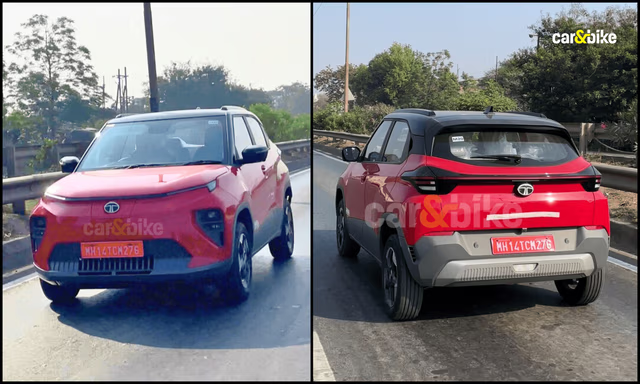 car&bike Team | Feb 12, 2026Tata Punch EV Facelift Spotted Ahead Of February 20 LaunchThe Punch EV facelift appears to be identical to the ICE counterpart.4 mins read
car&bike Team | Feb 12, 2026Tata Punch EV Facelift Spotted Ahead Of February 20 LaunchThe Punch EV facelift appears to be identical to the ICE counterpart.4 mins read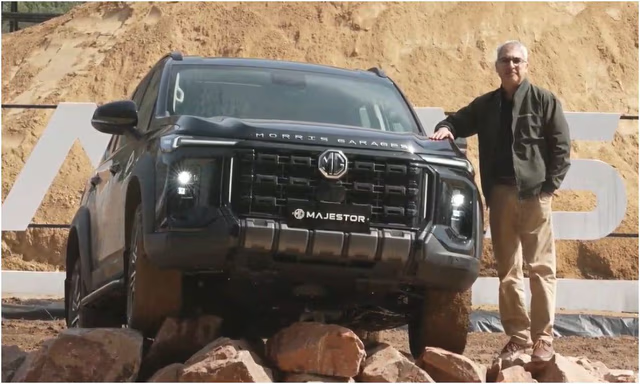 Amaan Ahmed | Feb 12, 2026MG Majestor SUV Unveiled In India Ahead Of April 2026 LaunchReplacing the Gloster in the lineup, the Majestor will be the new MG flagship SUV in India, and deliveries will begin in the month of May.1 min read
Amaan Ahmed | Feb 12, 2026MG Majestor SUV Unveiled In India Ahead Of April 2026 LaunchReplacing the Gloster in the lineup, the Majestor will be the new MG flagship SUV in India, and deliveries will begin in the month of May.1 min read Jaiveer Mehra | Feb 12, 2026Mahindra Eyes Increasing Production Capacity Of ICE & Electric SUVs By Up To 7,000 Units Per Month By Q2 FY2027Carmaker said that currently models such as the Bolero, Bolero Neo and XUV 3XO are being manufactured at peak capacity.3 mins read
Jaiveer Mehra | Feb 12, 2026Mahindra Eyes Increasing Production Capacity Of ICE & Electric SUVs By Up To 7,000 Units Per Month By Q2 FY2027Carmaker said that currently models such as the Bolero, Bolero Neo and XUV 3XO are being manufactured at peak capacity.3 mins read
 Bilal Firfiray | Feb 12, 2026BMW X3 30 xDrive M Sport Review: The Driver’s SUV ReturnsRange-toppingX3 30 xDrive M Sport brings back the fun with 255bhp and genuine enthusiast appeal. Does this performance-focused SUV stand out?5 mins read
Bilal Firfiray | Feb 12, 2026BMW X3 30 xDrive M Sport Review: The Driver’s SUV ReturnsRange-toppingX3 30 xDrive M Sport brings back the fun with 255bhp and genuine enthusiast appeal. Does this performance-focused SUV stand out?5 mins read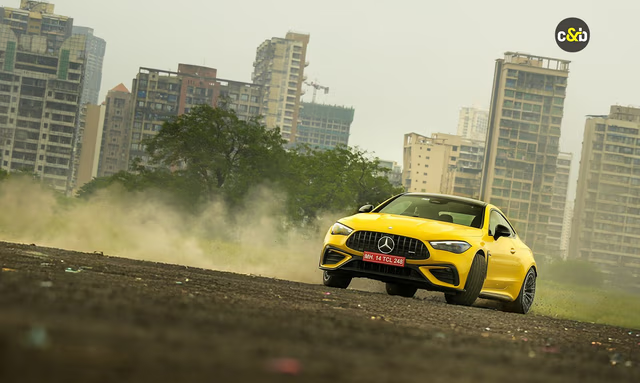 Bilal Firfiray | Feb 11, 2026Mercedes-AMG CLE 53 Coupe Review: The Goldilocks AMG?The Mercedes-AMG CLE 53 Coupe is a concoction of hooliganistic performance and everyday usability. Here’s why this Rs 1.5 crore two-door AMG might be the perfect modern sports coupe for India.6 mins read
Bilal Firfiray | Feb 11, 2026Mercedes-AMG CLE 53 Coupe Review: The Goldilocks AMG?The Mercedes-AMG CLE 53 Coupe is a concoction of hooliganistic performance and everyday usability. Here’s why this Rs 1.5 crore two-door AMG might be the perfect modern sports coupe for India.6 mins read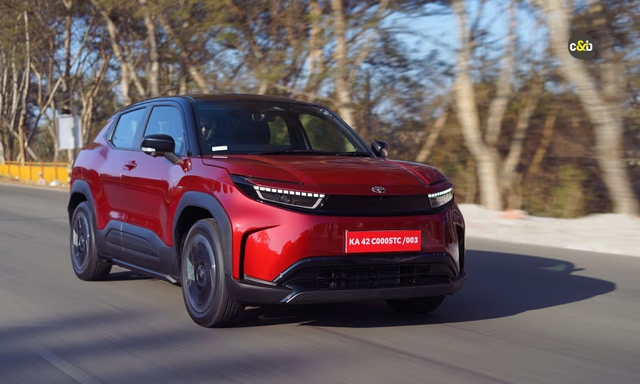 Girish Karkera | Feb 11, 2026Toyota Ebella EV Review: Compact And Fun-To-Drive With The Promise Of Stress-Free AftersalesNo hiding the fact that it is a clone of the Maruti Suzuki eVitara, but the first all-electric Toyota in India is reasonably well-rounded8 mins read
Girish Karkera | Feb 11, 2026Toyota Ebella EV Review: Compact And Fun-To-Drive With The Promise Of Stress-Free AftersalesNo hiding the fact that it is a clone of the Maruti Suzuki eVitara, but the first all-electric Toyota in India is reasonably well-rounded8 mins read Bilal Firfiray | Feb 10, 2026Tata Punch EV Long Term Review: Small EV With A Big-Hearted PersonalityWith the new Punch EV Facelift just around the corner, we decided to take a look at what it excels at and what could be improved.7 mins read
Bilal Firfiray | Feb 10, 2026Tata Punch EV Long Term Review: Small EV With A Big-Hearted PersonalityWith the new Punch EV Facelift just around the corner, we decided to take a look at what it excels at and what could be improved.7 mins read Bilal Firfiray | Feb 4, 2026Volkswagen Tayron R-Line Review: Sensible Flagship For IndiaVolkswagen has introduced a made-in-India flagship SUV that offers space, comfort, performance, and German driving finesse in a practical three-row package. But is the Tayron R-Line good enough?6 mins read
Bilal Firfiray | Feb 4, 2026Volkswagen Tayron R-Line Review: Sensible Flagship For IndiaVolkswagen has introduced a made-in-India flagship SUV that offers space, comfort, performance, and German driving finesse in a practical three-row package. But is the Tayron R-Line good enough?6 mins read



